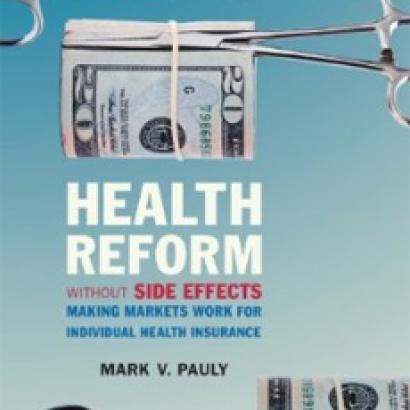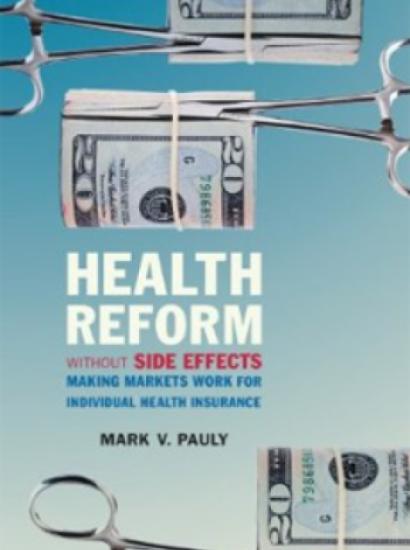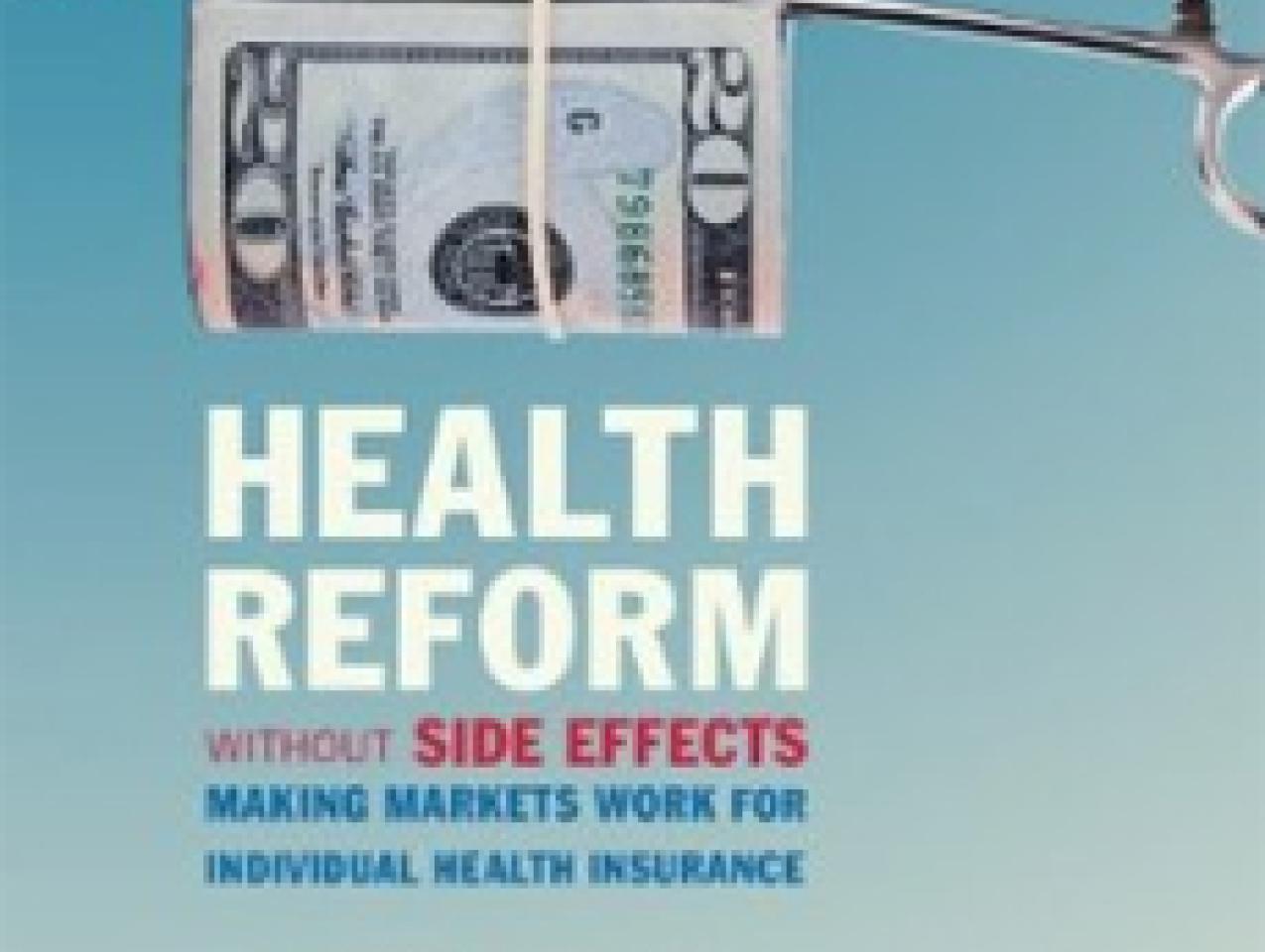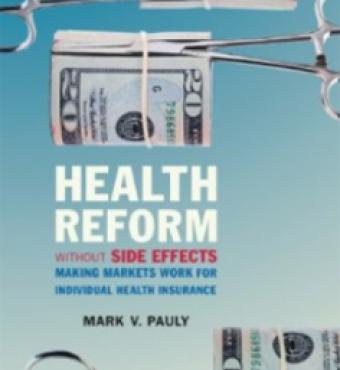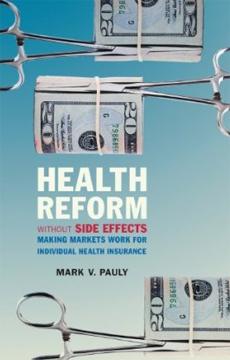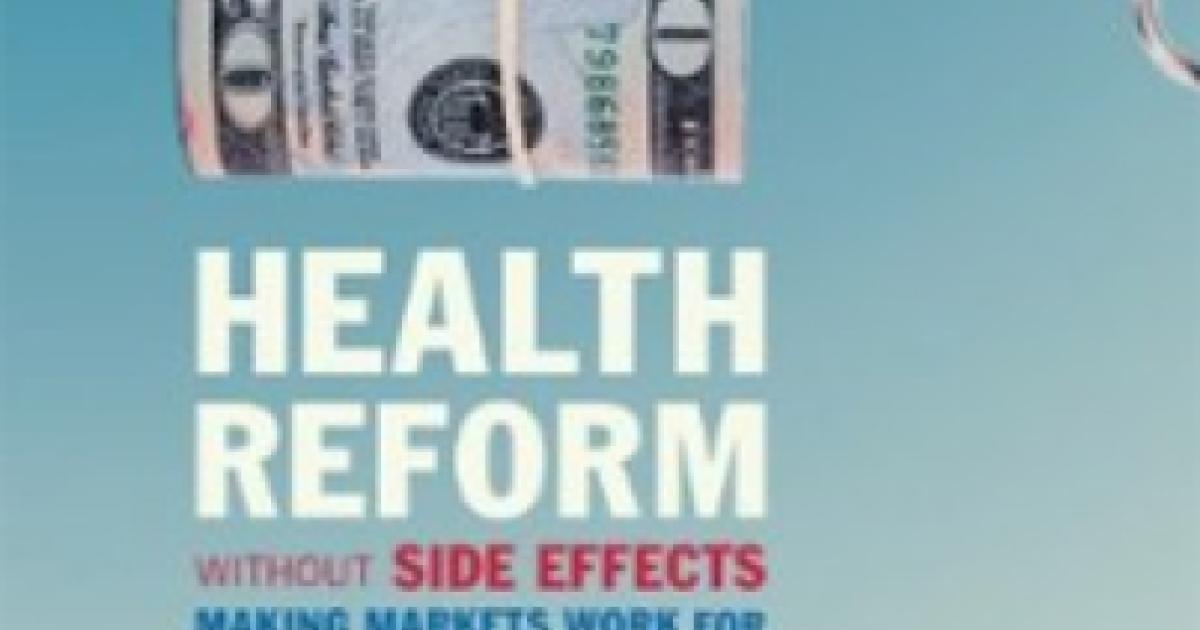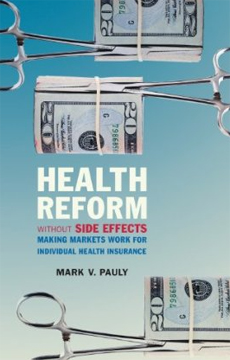
Does the U.S. health care system need to be completely overhauled as the current administration proposes? “While there surely are some serious deficiencies in today’s individual insurance market, the current criticisms are overly harsh, often based on anecdote and speculation, and ignore some important advantages in this market that should be preserved,” says Mark V. Pauly in Health Reform without Side Effects: Making Markets Work for Individual Health Insurance (Hoover Press, 2010).
Pauly argues that the most frequently discussed alternative reforms reflect an excessively simplistic view of insurance markets that leads to policies likely to have serious side effects and do more harm than good by driving out some of the beneficial features of the present market. He also argues that better approaches would take into account the current strengths of the individual market and yield much higher net benefits with much greater confidence.
In Health Reform without Side Effects, a comprehensive examination of the individual insurance market, Pauly discusses how individual insurance markets currently fit into the overall pattern of health insurance markets, identifies what is distinctive about current performance in that market relative to the alternatives, suggests improvements in the individual market that build on what currently works well, contrasts those with alternative reforms, and offers a realistic assessment of how much improvement can be demanded and expected.
Pauly, the Bendheim Professor in the Department of Health Care Systems at the Wharton School of the University of Pennsylvania, is a member of the Hoover Institution’s Working Group on Health Care Policy.
Health Reform without Side Effects: Making Markets Work for Individual Health Insurance,
by Mark V. Pauly
| ISBN: 978-0-8179-1044-0 | $19.95 |
| 112 pages | April 2010 |







